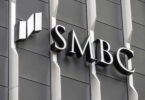A recent survey by WealthRocket found that most Canadians (59%) would be willing to use a central bank digital currency (CBDC) if the Bank of Canada decided to launch one. However, The figure may be somewhat nuanced, as 43% of all respondents would only be ‘somewhat’ willing.
CBDC ambivalence
Tthe devil is in the detail, as only 16% would be very or extremely willing to use the CBDC, compared with 25% who would not consider using it at all. Most people (43%) found themselves leaning toward the ‘somewhat willing’ option, but a significant portion (16%) didn’t feel confident enough to give a definite answer.
This lack of awareness suggests the need for a more effective public communications campaign. The Bank of Canada has been running a public consultation to explain its motivations and address citizens’ concerns when it comes to CBDCs, but many people still don’t know what to expect.
CBDC impact on cash
Part of this confusion may relate to concerns over the future of physical cash. Almost half of the survey respondents said they worry about CBDCs phasing out banknotes and coins, and with 63% of people saying they would be willing to use a CBDC in place of cash (25% yes; 38% maybe), that may well be the case.
Cash payments declined 62% between 2016 and 2021, and they now represent only 10% of total Canadian payments. In contrast, credit and debit cards together account for 66%.
Privacy and other concerns
Lastly, the survey also highlighted Canada’s other major concerns when it comes to CBDCs, including the potential for fraud (56%), the risk of cyber attacks (53%), and “unpredictable consequences” (41%).
The list or reservations also included the potential loss of control over personal finances at 39%, which speaks to a broader fear over privacy safeguards. Last year, the Canadian government froze the bank accounts of some Covid protesters after they occupied the country’s capital for three weeks, so many wonder whether a CBDC could lead to similar outcomes in the future.
However, despite these fears, 51% Canadians say they are at least somewhat confident in the central bank protecting their privacy, compared to 25% who are not confident at all.






